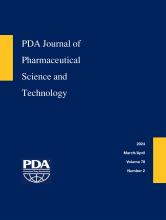Abstract
The Cell Banks, Advanced Technologies (ATMPs, NGS) session at the 2023 Viral Clearance Symposium (VCS) focused on the assurance of high virus safety profiles of advanced technology medicinal products (ATMPs) by implementation of advanced virus detection methods using rapid and sensitive technologies, such as next-generation sequencing (NGS). All presentations in this session made the need to replace in vivo testing for viruses by new technologies that have been demonstrated to be incomparably broad in their detection capabilities and can even detect unknown viruses. An evaluation of historical data collected by the Consortium on Adventitious Agent Contamination in Biomanufacturing (CAACB) from their members’ in vivo and in vitro adventitious virus test experience as well as on using NGS was presented. The data convincingly supported the necessity to replace in vivo testing with faster, broader, more sensitive, more accurate, and more specific virus detection methods. Additionally, a collaborative study—initiated by the CAACB—with the goal to revisit traditional adventitious agent testing by using targeted NGS to replace in vivo and in vitro tests for well-known and broadly used Chinese hamster ovary (CHO) cells was presented, including the planned risk-assessment approach using prior knowledge and historical data. Overall, this session demonstrated that the use of new virus detection methods, such as NGS, represents a great opportunity to provide sufficient viral safety margins, specifically, for ATMPs, where downstream virus clearance is not possible. This path forward is also supported by the final ICH Q5A(R2) guideline.
- Adventitious agent testing
- Virus safety
- Next-generation sequencing (NGS)
- High-throughput sequencing (HTS)
- Advanced technology medicinal products (ATMPs)
- Cellular therapy products
- In vivo adventitious virus test
- In vitro adventitious virus test
- Upstream virus barrier
- Viral Clearance Symposium
- © PDA, Inc. 2024
PDA members receive access to all articles published in the current year and previous volume year. Institutional subscribers received access to all content. Log in below to receive access to this article if you are either of these.
If you are neither or you are a PDA member trying to access an article outside of your membership license, then you must purchase access to this article (below). If you do not have a username or password for JPST, you will be required to create an account prior to purchasing.
Full issue PDFs are for PDA members only.
Note to pda.org users
The PDA and PDA bookstore websites (www.pda.org and www.pda.org/bookstore) are separate websites from the PDA JPST website. When you first join PDA, your initial UserID and Password are sent to HighWirePress to create your PDA JPST account. Subsequent UserrID and Password changes required at the PDA websites will not pass on to PDA JPST and vice versa. If you forget your PDA JPST UserID and/or Password, you can request help to retrieve UserID and reset Password below.






